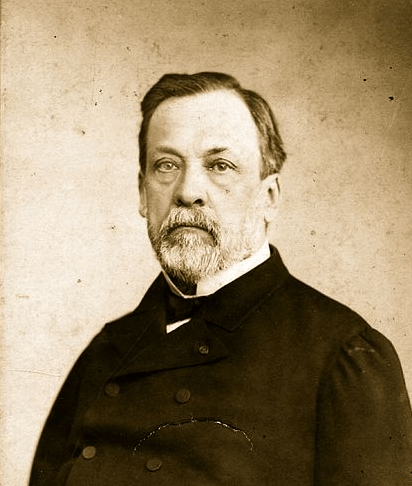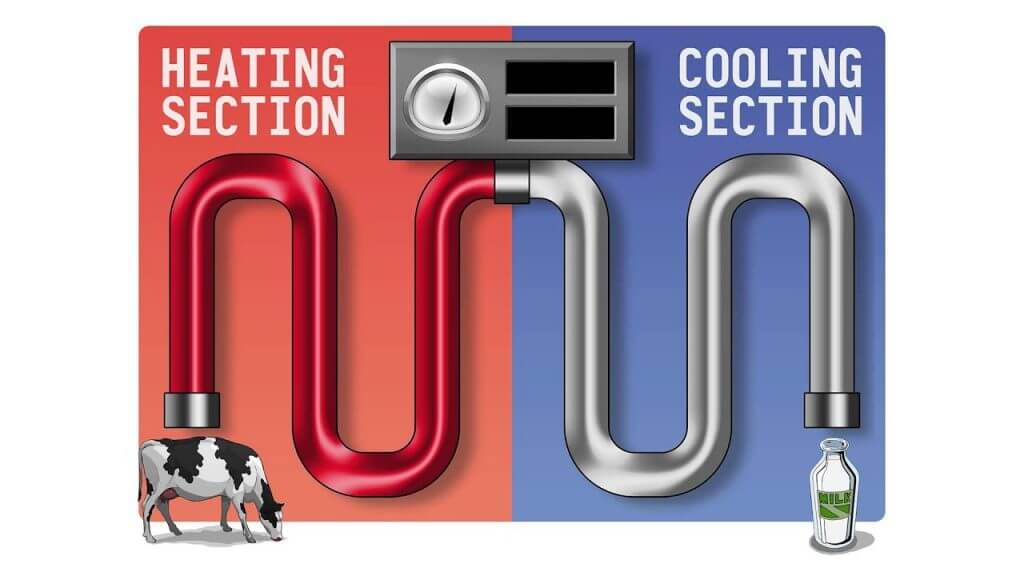Louis Pasteur
1/22/2022 10:42:37 PM
Do you know?
- Louis Pasteur was a French scientist in the 19th century. He is sometimes called the father of microbiology and the father of germ theory.
- Louis Pasteur is most famous for developing the pasteurization process. It is a process used to sanitize certain food products.
Let's explore more in the following passage!
Let's learn some new words before you read the passage:
Listen and complete the passage.
| proved | defense | multiply |
| shots | cooled | growth |
| rabid | sealed | germs |
Louis Pasteur lived long ago. But the things he did help keep you healthy today. He was not a medical doctor. Yet he found new ways to help keep people from getting ill. Pasteur studied . He figured out that germs could live almost anywhere. He believed that these germs caused sickness.
Pasteur that sicknesses happen when germs get inside a body and . He also found that if a few weak germs were put into an animal, the animal's body would develop its own against the germ. He proved this by giving sheep and chickens of weak germs. And it worked! Those animals no longer caught the bad sicknesses.
In 1881 he started work on a shot to stop rabies. Four years later, a dog bit a boy. The parents asked Pasteur to save their son. Pasteur did not want to use his shot on a person. He was not sure what would happen. But he knew that the boy was sure to die without it. The shot was his only chance. So Pasteur gave him the first human vaccine. The little boy lived.
Pasteur wanted to come up with a way to keep germs from getting into people's bodies. He found a way to make milk free of germs. He learned that germs could not stand heat. When he heated milk to 140°F and then quickly it and it in clean jars, the germs died. His method is called pasteurization. It has been used on milk ever since. Today it is used to prevent germ in other products, too.
Read and answer the following questions.
Louis Pasteur

Louis Pasteur lived long ago. But the things he did help keep you healthy today. He was not a medical doctor. Yet he found new ways to help keep people from getting ill. Pasteur studied germs. He figured out that germs could live almost anywhere. He believed that these germs caused sickness.
Pasteur proved that sicknesses happen when germs get inside a body and multiply. He also found that if a few weak germs were put into an animal, the animal's body would develop its own defense against the germ. He proved this by giving sheep and chickens shots of weak germs. And it worked! Those animals no longer caught the bad sicknesses.
In 1881 he started work on a shot to stop rabies. Four years later, a rabid dog bit a boy. The parents asked Pasteur to save their son. Pasteur did not want to use his shot on a person. He was not sure what would happen. But he knew that the boy was sure to die without it. The shot was his only chance. So Pasteur gave him the first human vaccine. The little boy lived.
Pasteur wanted to come up with a way to keep germs from getting into people's bodies. He found a way to make milk free of germs. He learned that germs could not stand heat. When he heated milk to 140°F and then quickly cooled it and sealed it in clean jars, the germs died. His method is called pasteurization. It has been used on milk ever since. Today it is used to prevent germ growth in other products, too.
Source: Daily Warm-ups Grade 2
- It kills germs as they enter the body.
- It makes the body produce more red blood cells.
- It doesn’t let germs get into the body.
- It helps the body make a defense against germs.
Why did the boy mentioned in the passage get sick?
- He was allergic to dogs' hair.
- He was bitten by a rabid dog.
- He was exposed to dirty dogs.
- He was born seriously sick.
What is true according to the passage about Louis Pasteur?
- He dreamt of being a scientist.
- He did not major in medicine.
- He had a long life expectancy.
- He studied germs by accident.
Which of the following is NOT mentioned in the paragraph?
- How Pasteur did pasteurization of milk
- Which animals Pasteur did experiments on
- What Pasteur used to study germs
- When the first human vaccine was given
What can be another title of this passage?
- Louis Pasteur and his ambition to prevent rabies
- The man with his great contribution to the world
- Impacts of pasteurization on the food industry
- The development of vaccination over the years
Build your vocabulary by learning these intensive phrases/idioms
Choose the word(s) CLOSEST in meaning to the underlined word(s).
It takes most people some time to figure out new software.
- understand
- calculate
- download
- choose
Combine the two sentences so that it has a similar meaning, using the word in a bracket. You must use between THREE and FIVE words, including the word given. Do not change the word given.
The Smiths used to live in that expensive villa. They had to move out because Mr. Smith went bankrupt. (LONGER)
=> Due to the bankruptcy of Mr. Smith, his family that expensive villa.
Choose the correct answer.
You should ask your accountant you some financial advice.
Choose the underlined part that needs correction.
A business with so much growth is sure generating interest among potential acquirers.
- A business
- so much
- generating
- acquirers
We must _____ a solution that our shareholders will find acceptable.
- come up with
- come down with
- come in for
Rearrange the words in the correct order to make a complete sentence.